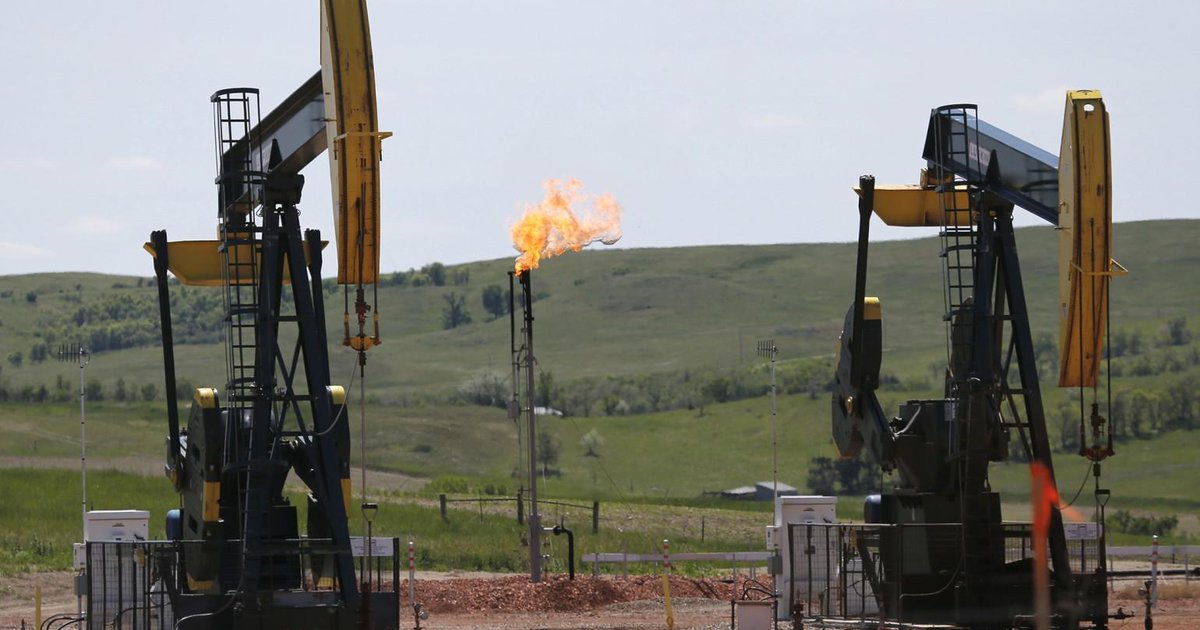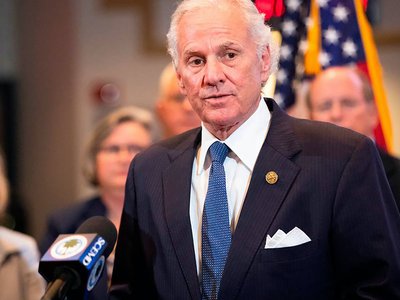Per Gov. Mark Gordon & Gov. Doug Burgum:
As Russian President Vladimir Putin pondered an invasion of Ukraine, imagine how he must have greeted the gifts President Biden offered through his first days’ executive orders.
The Canada-to-U.S. Keystone XL pipeline permit? Revoked. New oil and gas leases on federal lands? Suspended. Investments in pipeline infrastructure? Stifled by oppressive rules and excessive oversight. Then, with the president’s 180-degree policy reversal away from U.S. energy independence and with gasoline prices surging, the White House last summer incredibly called on OPEC to boost oil production while continuing to choke output at home.
Now, with the world watching in horror as Ukraine valiantly defends itself against brutal Russian aggression, the plain reality that energy security, national security and global stability are fundamentally linked is clearer than ever.
Even though this ugly conflict is far from American shores, its impacts arrived swiftly in the form of rising prices at the pump. American and European dependence on Russian oil and gas has reduced our strategic ability to hit Putin with hard-hitting sanctions, including against banks that finance Russian energy.
In December, the United States imported 405,000 barrels per day of Russian oil and crude oil products, according to the Energy Information Administration. The European Union, which gets 40% of its natural gas from Russia, was paying as much as $722 million a day to Russia last week – triple what it was paying before the invasion, the Wall Street Journal reported, citing the Bruegel think tank.
For well over a generation, oil prices have become either the harbinger of global anxiety and panic, or the measuring stick of peace and prosperity. Because of the commodity status of oil and Russia’s outsized role in its supply, Putin’s actions have resulted in a dramatic and rapid price spike. For the first time since 2014, oil surpassed $100 per barrel, and there’s no limit in sight.
While some may point to the war in Ukraine as the catalyst for the rise in oil prices, this isn’t a new trend.
While some may point to the war in Ukraine as the catalyst for the rise in oil prices, this isn’t a new trend. In fact, inflation was already underway late last fall as oversupply unwound after the initial shock of COVID-19. Prices have continually increased and been exacerbated as storage has drawn down and federal policy has discouraged investment.
Washington downplays the effects of federal energy policy, but those in the energy business understand that oil production and rig count are far below pre-pandemic levels. All this despite the price per barrel being almost twice as high as it was in January 2020. Put simply, the math doesn’t make sense.
In Wyoming and North Dakota, we have been watching this math closely.
Wyoming is the highest net energy producer in the United States, exporting 90% of the energy it produces, and much of the oil and gas mineral estates exist on federally owned land. In North Dakota, oil production remains more than 380,000 barrels per day below pre-pandemic levels.
Yet, despite the skyrocketing cost of oil, the very same week that Russian troops crossed over into Ukraine, the U.S. Bureau of Land Management again failed to meet its legal obligation to issue notice of oil and gas lease sales in North Dakota and Wyoming. This prolongs the string of more than 15 months without a quarterly sale as required by law, shortchanging state and local governments in Wyoming by an estimated $47 million since January 2021. In North Dakota, two canceled lease auctions in 2021 resulted in an estimated $82 million in losses to the state.
America needs to pursue an all-of-the-above approach to energy and we need to do it now. This is not an either-or scenario – it means simultaneously growing renewable energy without compromising dispatchable baseload power, harnessing advancements in nuclear power, deploying carbon capture, developing next-generation technologies in the form of hydrogen, and continuing to extract fossil fuels in the most responsible way possible.
In his State of the Union address, the president called for the United States to "buy American." His administration should heed those same words when it comes to U.S. energy. Otherwise, we will continue to be dependent on nations and autocrats who produce energy less cleanly than we do, and who clearly care nothing for our American ideals of democracy and prosperity.
While we appreciate last week’s ban on Russian energy imports into the United States, the president should focus urgently on producing homegrown energy, with a mix of clean fossil fuels and renewables. We should be able to sell cleanly produced energy to our friends and allies, rather than rely on buying dirtier energy from our adversaries and competitors. It’s that simple.






